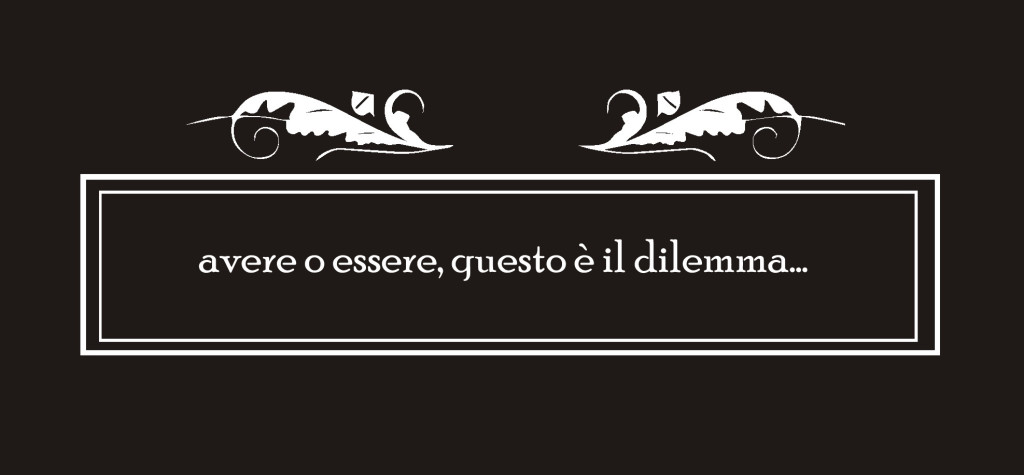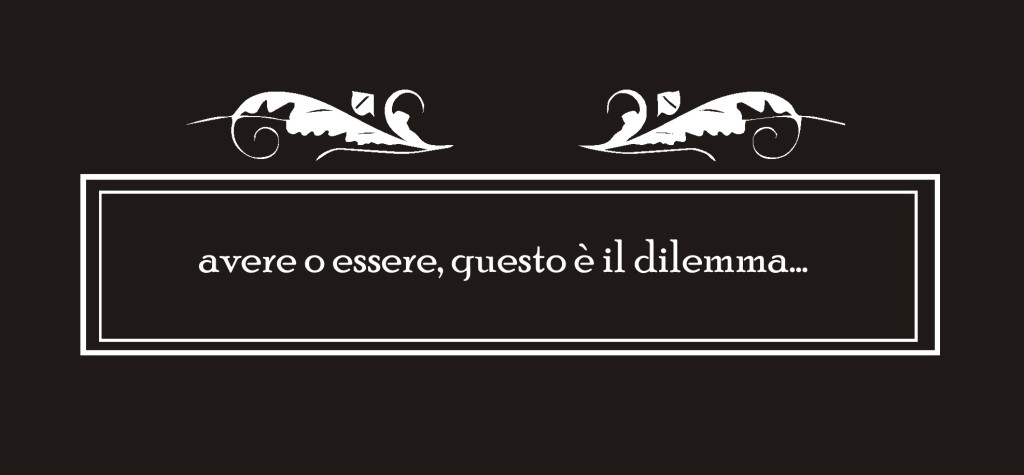by Mirella Colalillo on May 3, 2014
It’s well-known by now, “è risaputo ormai”, that Italians are the leaders not only in delicious food, fashion, cultural treasures, but also in expressing feelings, sensations, and opinions. From happiness to dissatisfaction and everything in between.
If you run into your Italian friend and ask her how she is doing, forget about “I’m good, and you?” for an answer, and instead, prepare for a detailed description of “vita, morte e miracoli”, as we say in Italian. If you don’t want to be labeled as “antipatico/a”, I suggest you follow along and do the same. At worst, “male che vada”, you might end up enjoying yourself “al bar”, at the coffee shop. And let’s be honest, going for your daily jog in the park and rushing to update your Facebook, Twitter, “e chi più ne ha più ne metta”, and so on and so forth status can wait anyway.
“Ascoltare. Non c’è cosa migliore da fare che ascoltare chi ha qualcosa da dire” @parlate_it
(Tweet-worthy!)
(Translation: “To listen. There is nothing better to do than to listen to someone who has something to say.”)
The best way to make a good impression, “fare una bella figura”, is to learn the most common idiomatic expressions in Italian that use “avere” (to have) and “essere” (to be), which, as many of you have complained “all’italiana” (Italian style), do not correspond to the English expressions. For example: “Io ho sonno” (I’m sleepy), “Io sono stanco” (I’m tired).
Avere + noun is used in many idiomatic expressions in Italian, but the equivalent English expressions are generally formed with essere + adjective.
There is no specific rule that explains this difference. The best advice is to:
- first learn the conjugations of the verbs “essere” and “avere” starting with il “presente indicativo”
- then learn each expression correctly
- and as always practica, pratica, pratica!!
Here are some idiomatic expressions in Italian that use “avere” and “essere”.
“Avere” is used in the following expressions:
avere caldo – to be hot
avere freddo – to be cold
avere fretta – to be in a hurry
avere paura – to be afraid
avere bisogno di – to need
avere voglia di – to want, to feel like
avere a che fare con – to deal with
avere sete – to be thirsty
avere sonno – to be sleepy
avere fame – to be hungry
“Essere” is used in the following expressions (just like in English!):
essere stanco/a – to be tired
essere arrabbiato/a – to be angry
essere contento/a – to be happy
essere annoiato/a – to be bored
essere felice (m/f) – to be happy
essere triste (m/f) – to be sad
essere entusiasta (m/f) – to be enthusiastic
essere preoccupato/a – to be worried
essere in ritardo – to be late
essere testardo/a – to be stubborn
Allora, come sto?
Oggi sono felice e ho voglia di fare una passeggiata. Non ho freddo, perché è finalmente arrivata la primavera in Canada! Sono molto entusiasta!
(How am I? Today I am happy and I feel like taking a walk. I’m not cold, because spring has finally arrived in Canada! I’m enthusiastic!)
E tu come stai? Let me know in the comments below.
Remember there is no quick fix in learning idiomatic expressions… practice makes perfect!
If you liked this post please share & like!
Grazie,
Mirella
Popular posts:


